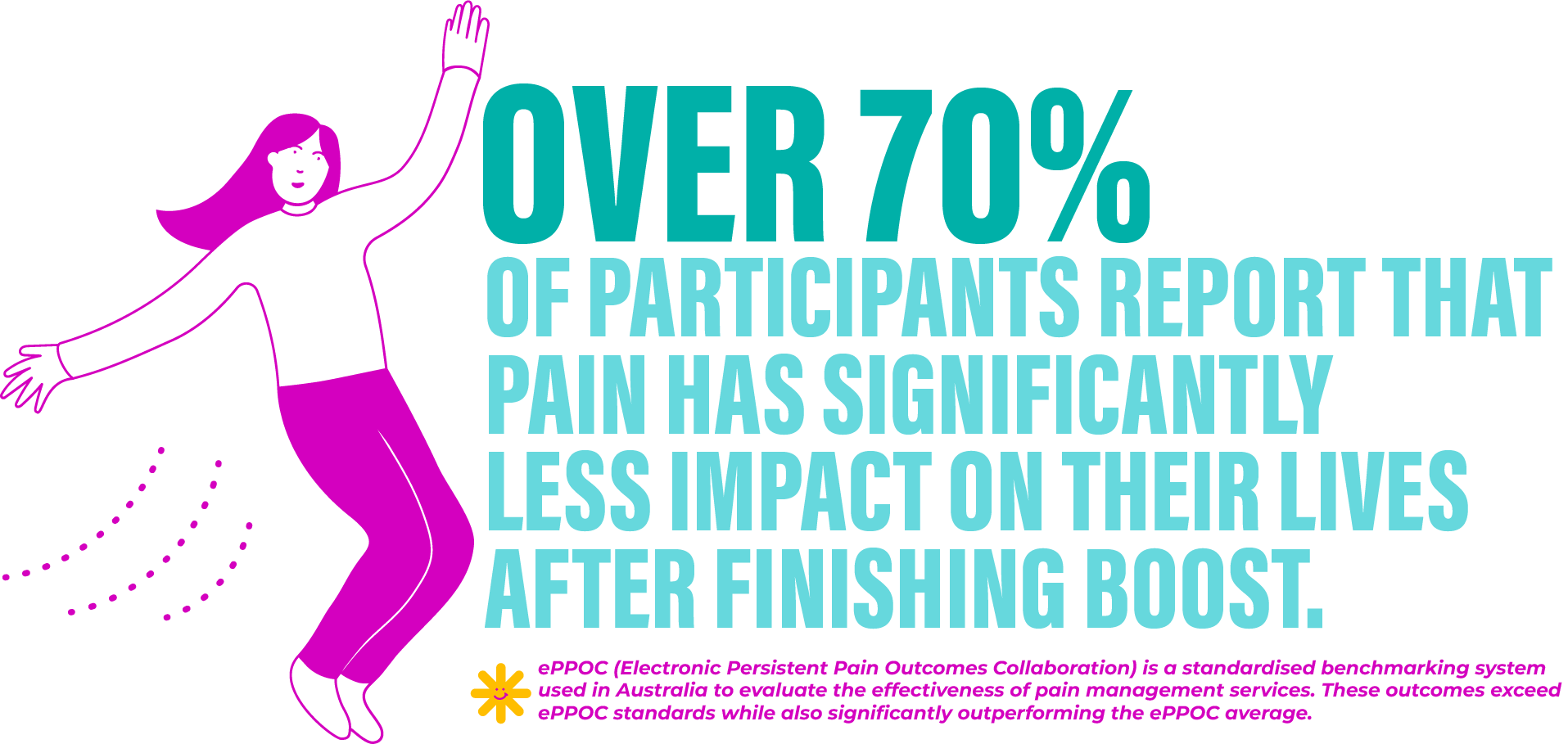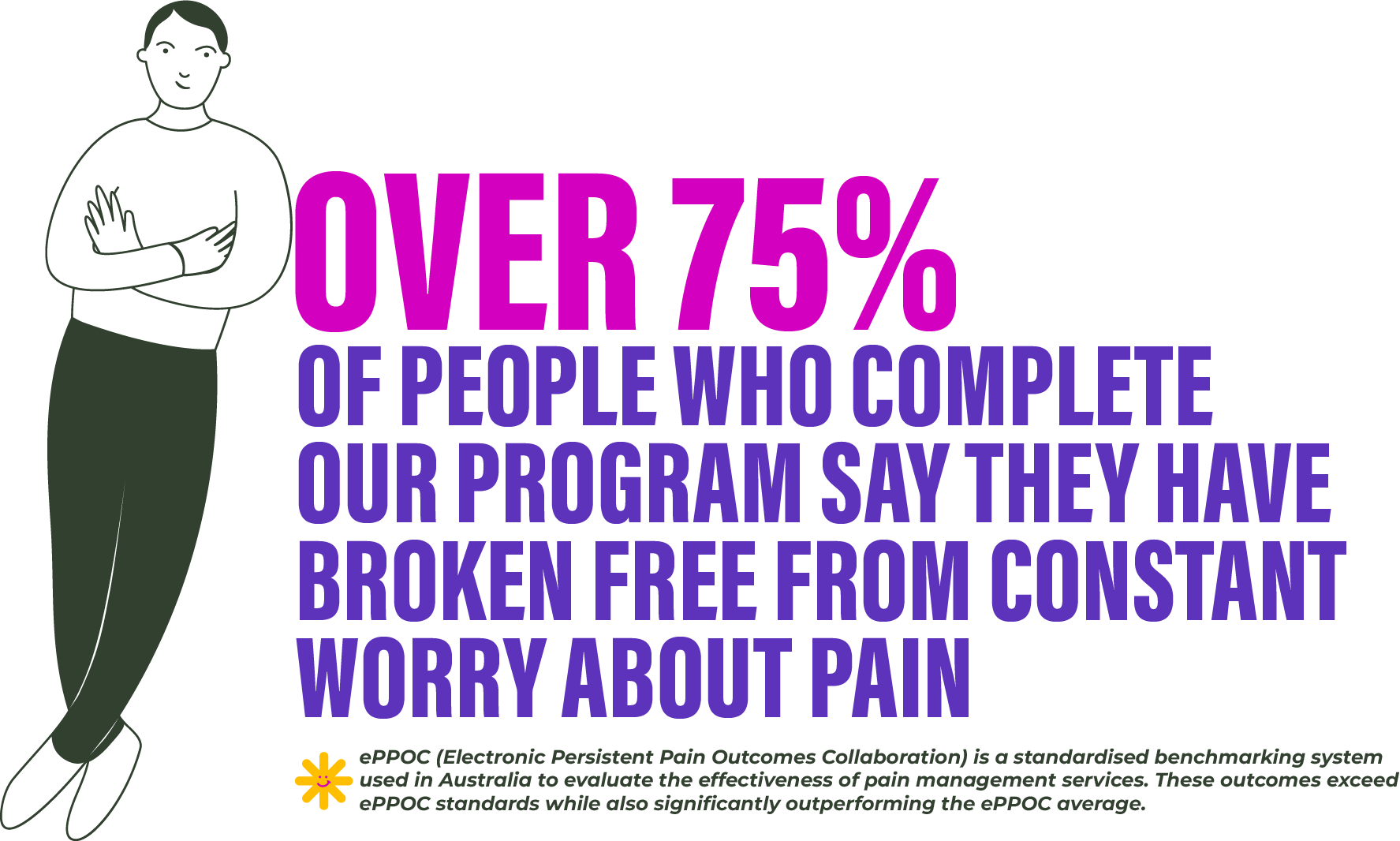For many people, pain becomes the defining problem that limits their return-to-work plans. When pain persists beyond the acute phase, significant changes start happening in the body that can make the pain stick. It’s complex, because pain is not just pain. Sleep, mood, the ability to get things done - pain affects all of these, while these changes in turn make pain worse. It’s a vicious cycle.
BOOST Recovery is an award-winning virtual care clinical program supporting self-management of pain recovery using evidence-based approaches. Your patient will work with an Allied Health pain-informed, expert Pain Coach to co-design a goal-oriented plan of care. BOOST will provide your patient with the guidance, skills, training and encouragement needed to put their care plan into practice.

BOOST Health Labs’ targeted focus on assisting people through their pain journey is grounded in rigorous science, from our evidence-based methods to data-driven decisions about care planning and delivery.
Outcomes and benefits to the patient upon completion of BOOST include, but are not limited to:
The BOOST Recovery Program is delivered in two phases: the BOOST Recovery Pathfinder followed by the BOOST Recovery Program.
Delivered in four sessions over two weeks, the Pathfinder is a series of discovery and practical problem-solving sessions. It utilises standardised evidence-based testing, and includes some introductory pain science education. The Pathfinder Report is created in collaboration with the injured worker, outlining the best pathway for their future treatment.
The BOOST Recovery Program is uniquely customisable, with each person’s program adapted to suit their specific recovery needs. The program encompasses pain education, graded exposure, skills for planning and pacing, and other psychologically-informed strategies for lasting behaviour change. All participants are given lifetime access to the BOOST Recovery app and the BOOST Learning Materials.
There are two BOOST Program pathways post-Pathfinder:
BOOST Lite (4 weeks), suitable for people with low distress and high levels of engagement.
BOOST Prime (10 weeks), suitable for people with high distress and high levels of engagement.

